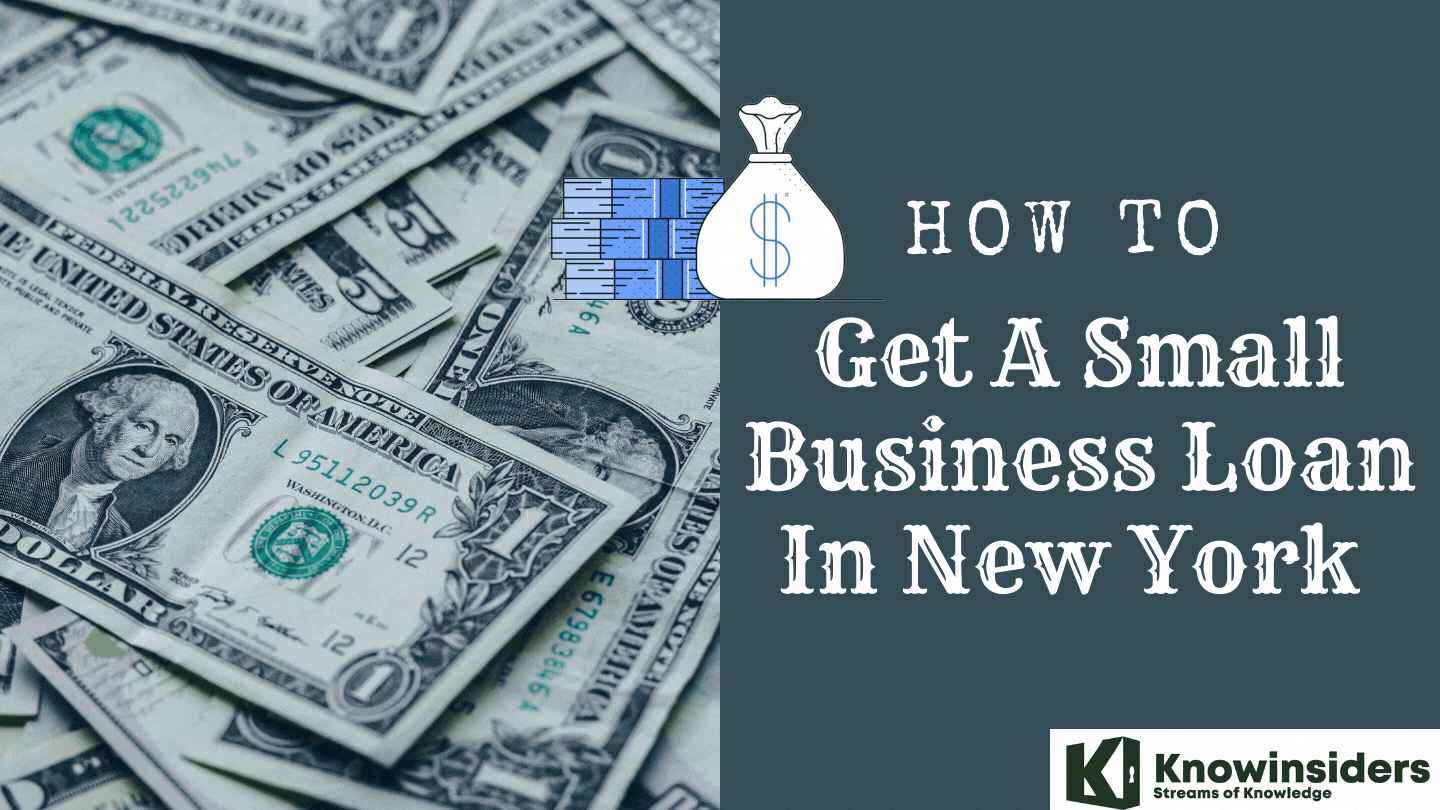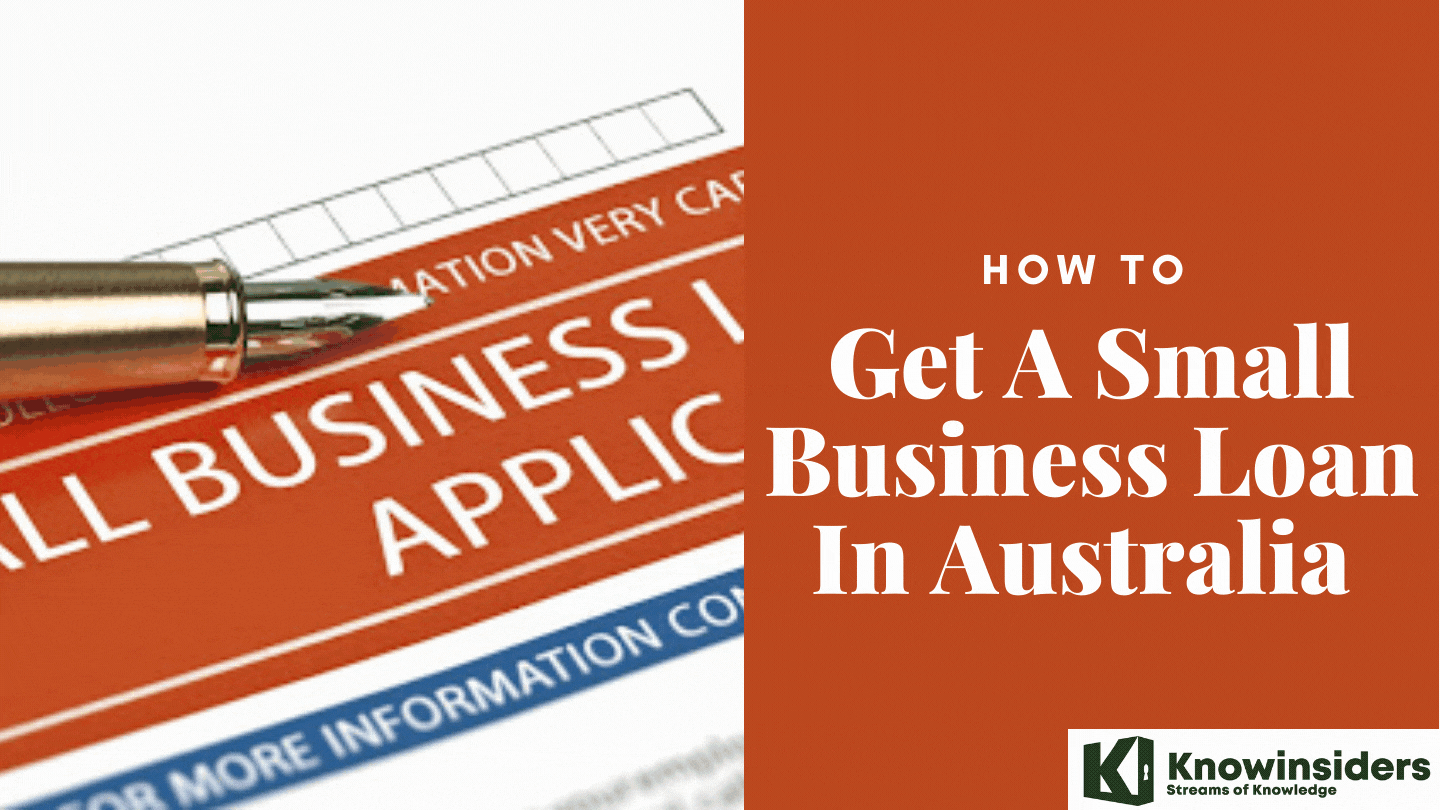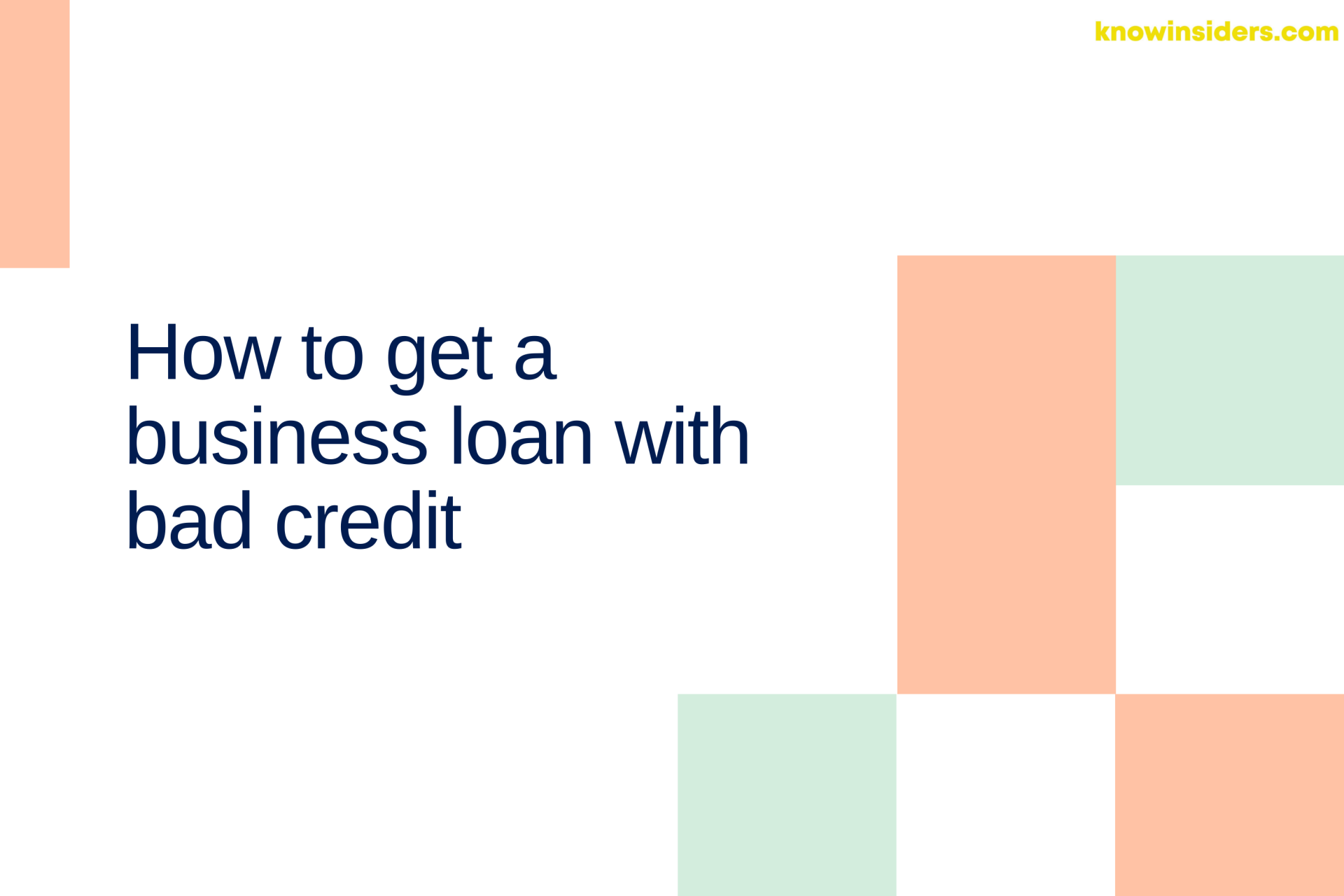The Complete Guide To Get A Small Business Loan in New York Today
 |
| How To Get A Small Business Loan in New York |
| Table of Contents |
Loans for small businesses in New York Options abound for NYC business owners who need access to small business funding, from local government-guaranteed programs to national banks that lend particularly well to NYC businesses. There are many options for small business loans in New York City, and in this article we'll go over how to apply for one of them.
Despite the fact that many national lenders offer loans to small businesses in NYC, local loans for small businesses in the city may feel more individualized and in-person. And fortunately for business owners in New York City, the city has a number of excellent local funding options.
What is an unsecured business loan?
Unsecured small business loans are those that don't require collateral and are instead granted solely on the basis of the borrower's ability to repay them. Unsecured small business loans may be difficult for many small businesses to get, even though in the past they were available to a very creditworthy business borrower. Today, a business line of credit or business credit card would be the most typical unsecured business financing option that small business owners would come across.
Banks typically favor secured business loans over unsecured ones because they would rather write loans based on the value of particular assets.
What is a secured business loan?
Unsecured business loans are rarely considered by banks. Unpaid secured loans can result in the repossession and sale of collateral, which could include real estate, machinery, or other valuable business assets.
The loan-to-value ratio of your collateral is a common metric used by banks and other collateral-requiring lenders to evaluate your loan application. In other words, your bank might let you borrow up to 75% of the value of your real estate's appraisal, or 60%-80% of the value of your "ready to go" stock. You should inquire about the intended method of determining the loan-to-value ratio with any prospective lender.
What is Considered a Small Business in New York?
Small businesses are those with 500 or fewer employees, according to the Small Business Administration, but New York State has its own definition of what constitutes a small business.
The state defines small businesses as those with 100 or fewer employees. Why is this important? There may be requirements for small business owners applying for loans or grants, including the size of their enterprise.
Type of Small Business Loans in New York
Coronavirus Pandemic Loans
Here is an overview of the programs that were available, even though some of them are no longer in operation in New York and other parts of the country.
Small businesses received financial assistance from the federal government through the Paycheck Protection Program (PPP) and the Economic Injury Disaster Loans.
For businesses in New York state seeking financial assistance, the New York Forward Loan Fund (NYFLF) may still be available at the state level. To get the most recent updates, click the link.
Term Loans
Small businesses with excellent credit can get longer-term loans with low interest rates from commercial lenders like traditional banks, credit unions, and online lenders.
SBA Loans
The U.S. Small Business Administration is another resource for financing with long-term, low-interest loans. Learn more about programs like the SBA 7(a) and 504 loans at SBA.gov.
Lines of Credit
A business line of credit can be useful when you don't require a large amount of money all at once because you can take out small loans from it now and then. When you repay what you borrowed, you can borrow from it once more.
Equipment Financing
Equipment loans can be helpful if you need money to buy things like computers, machinery, or vehicles for your business. These allow you to use the machinery you're purchasing as collateral, potentially lowering your interest rate.
Credit Cards
Having one or more business credit cards can be valuable for making purchases like office supplies. Look for a card with a 0% APR introductory offer and a great rewards program.
Short-Term Loan
You can still get the money you need through a short-term loan even if you have a low credit score. Keep in mind that the rates of interest and the terms of repayment on these are typically higher.
Best Small Business Loans for NYC Businesses
1. NYC Capital Access Loan Guaranty Program
Micro and small businesses in New York City that meet eligibility requirements can receive a 40 percent loan guarantee from the New York City Economic Development Corporation (NYCEDC) through its NYC Capital Access Loan Guaranty Program (Cap Access). Working capital, tenant improvements, equipment purchases, and refinancing of existing loans are all acceptable uses of loans generated through this program.
Micro-businesses, for the purposes of this initiative, are defined as those with fewer than 20 employees. Companies with fewer than 100 workers are considered small.
Program Benefits:
Better access to competitively priced loans
Access to a network of business lenders
Referral to small business counseling and training programs
Small businesses interested in applying for Capital Access loans can now receive free advisory services from NYC Business Solutions and NYCEDC. Business owners can get assistance from NYC Business Solutions in choosing the Capital Access lender that best suits their needs and industry.
2. TD Bank
The American national bank TD Bank, N.A. is a division of the Canadian multinational Toronto-Dominion Bank. It primarily operates along the East Coast and in fifteen states plus Washington, D.C. Due to numerous mergers and acquisitions, TD Bank is the seventh-largest U.S. bank by deposits and the 11th-largest bank in the country by total assets. The main office of T.D. Bank, N.A. is in Cherry Hill, New Jersey.
Small businesses in New York City should also look to TD Bank as a top funding option. In addition to being a Preferred SBA Lender, TD Bank ranked first among NYC SBA Lenders in 2018. TD Bank provided 898 SBA loans and a total loan volume of $67,261,200 to small businesses in New York through their participation in the SBA 7(a) and SBA CDC/504 loan programs.
TD Bank might be one of your best options if you're looking for an SBA loan for a well-qualified NYC small business. Just be aware that it will be difficult to qualify for SBA loans from any SBA lender, much less the best SBA lenders in NYC. TD Bank SBA loans might be an option for you if you have at least two years of business experience, a personal credit score of at least 680, and at least $180,000 in annual revenue.
3. WE Fund Credit
The WE Fund Credit program, which is administered by the WE NYC initiative out of the NYC Department of Small Business Services, offers female entrepreneurs in New York City small business lines of credit.
You must identify as a woman, operate a business in NYC, have been in operation for at least a year, and generate at least $50,000 in annual revenue to be qualified for a business line of credit through this NYC business funding program.
This NYC small business funding option will have credit limits of up to $100,000. Though you can fill out a form on their website to be informed when they start accepting business loan applications, keep in mind that applications for this program won't open until the spring of 2019.
4. The Brooklyn Fund
The Brooklyn Fund is a small business loan program run by the New York Business Development Corporation for Brooklyn-based companies. You must operate in Brooklyn, be a for-profit company, and be owned by a permanent resident or citizen of the United States in order to qualify for these small business loans.
These small business loans for Brooklyn small businesses can have amounts as high as $350,000 and terms as long as 10 years, with interest rates as low as 6%. You must submit your application through the Business Solutions Center of the Brooklyn Chamber of Commerce at 9 Bond St., 5th Floor, Brooklyn, NY 11201. The cost of application fees ranges from $150 to $1,300.
5. Excelsior Growth Fund
Excelsior Growth Fund is another excellent choice for NYC small businesses looking for low-cost business financing. A non-profit CDFI called Excelsior Growth Fund offers small business loans to companies in Pennsylvania, New Jersey, and New York. EGF provides a number of funding options that can provide up to $500,000 in capital. However, their EGF Smartloan is their standout offering. With this small business loan in NYC, borrowers can apply online and, if they are approved, receive up to $100,000 in funding within a week.
If you need $50,000 or less in small business funding for your NYC company, an SBA Microloan from EGF may be your most cost-effective choice since it is a certified SBA Microloan intermediary.
6. Business Center for New Americans
The Business Center for New Americans is one last prominent local source of small business loans for businesses located in NYC. Another CDFI and SBA-certified microlender, BCNA offers small businesses in NYC microloans ranging from $500 to $50,000.
All small businesses in Queens and Staten Island, as well as those run by immigrants, refugees, or women in Manhattan, Brooklyn, and the Bronx, are eligible to apply for small business loans from BCNA. For loans greater than $3,000, you'll also require at least one guarantor with good credit.
These loans have terms of six months to three years, and interest rates range from 8.5 to 10% at the moment. Closing costs range from $2 to $50, and loan application costs are 2% of the loan amount.
One distinctive benefit provided by BCNA is their consideration of startup applications. Three to six months of revenue must be shown by an established business, which will naturally strengthen their application. However, new businesses will be able to apply for these small business loans with a projected startup budget.
How to Apply for a Small Business Loan in New York
The complexity of loan applications will also differ from one lender to another. Online lenders typically have brief applications that only ask for a few facts about your company and annual revenue.
Additional information, including tax returns, financial statements, and a business plan, may be required for SBA and bank loans.
If you don't have a business plan, turn to resources for entrepreneurs like the New York Small Business Development Center, which can offer technical support and free assistance in creating one.
Read More: How To Get A Small Business Loan In America
Best Lenders for NYC Small Business Loans
1. Chase Bank
The consumer and commercial banking division of the American multinational banking and financial services holding company, JPMorgan Chase, is JPMorgan Chase Bank, N.A., also known as Chase Bank or simply as Chase. Its headquarters are in Manhattan, New York City. Chase Manhattan Bank was the name of the institution up until its 2000 merger with J.P. Morgan & Co. In 1955, the Chase National Bank and the Manhattan Company merged to form the Chase Manhattan Bank. In 2004, the bank merged with Bank One Corporation, and later it took over the majority of Washington Mutual's assets and deposits.
More than 5,100 branches and 17,000 ATMs are available nationwide through Chase. As of 2016, JPMorgan Chase & Co. had 250,355 employees and operated in more than 100 nations. In 2016, JPMorgan Chase & Co.'s assets totaled $2.49 trillion.
2. Cross River
With its main office in Fort Lee, New Jersey, Cross River Bank is a state-chartered commercial banking organization in the United States. The FDIC-member and equal housing lender Cross River is governed by a New Jersey charter. For embracing the movement in the financial services industry toward API-based payment platform services, Cross River stands out among community banks.
Cross River identifies itself as a "trusted financial services organization that merges the established expertise of a bank, with the innovation and product offering of a technology company." The company was established in 2008, and its headquarters are in Fort Lee, New Jersey, a suburb of the City. They have received glowing feedback from their small-business clients for their competitive rates and terms, particularly for loans supported by the SBA. Customers are permitted to borrow up to $5 million on 7(a) SBA-backed loans and up to $18 million on 504 loans with up to 25-year repayment terms.
3. Brooklyn Cooperative Federal Credit Union
As one of the top lenders to small businesses in the city, Brooklyn Coop. Since it is a credit union rather than a bank, it is a non-profit organization. Applications for loans are accepted "from any business regardless of its history," and flexible repayment terms of up to 12 years are available. Starting loans range from $500 to $15,000, while borrowing limits for established businesses are $50,000.
4. NYC Capital Access Loan Guaranty Program
A public-private partnership known as the NYC Capital Access Loan Guaranty Program enables micro and small businesses that have trouble obtaining traditional bank loans to receive up to $250,000 for working capital, leasehold improvements, and equipment purchases.
5. Fund for Nonprofit Finance
Investigate the Nonprofit Finance Fund's New York office if you're a startup nonprofit or social enterprise looking for funding. Over the past 40 years, NFF has provided $875 million in financing and currently manages assets worth over $347 million. Being a US Community Development Financial Institution (CDFI), its main objective is to assist a community's least advantaged residents by making affordable loans available.
Are small business loans right for your business?While small business loans are one of the most popular funding options available to entrepreneurs, like any form of borrowed money, they boast a number of pros and cons. Advantages of small business loansNumerous business owners rely on small business loans to launch or expand their ventures for a variety of reasons, including: • The benefit. In addition to the numerous online lenders that provide small business loans, every town has a bank or other financial institution. This indicates that approaching a lender for this type of funding is convenient and generally simple. • Companies have easy access to large sums of money. Entrepreneurs are able to borrow sizable sums of money to launch or grow their businesses, depending on the type of small business loan chosen and the intended use of the funds. For instance, data from the U.S. Small Business Administration (SBA) revealed that in 2016, business owners borrowed an average of $417,316 through the 7(a) loan program. In 2016, the average loan size from national banks to small businesses increased to $600,000. • Interest rates are lower. Business owners with high credit scores can typically obtain small business loans at relatively low interest rates. The annual percentage rate (APR) charged by traditional lenders like banks or credit unions typically ranges from 4% to 13%, while that charged by online lenders can range from 7% to over 100%. The interest rate will be determined by the amount borrowed, the entrepreneur's credit score, and a few other factors. Compare that to the typical credit card interest rates for borrowers with good credit in 2018, which were around 19.88%. • Various loan types for various needs. Small business loans are not all created equally. Small businesses benefit from the variety of loans available to meet a range of needs. For instance, SBA 7(a) loans and SBA Express loans can be used for a variety of things, such as refinancing and growth capital. Entrepreneurs can rely on CDC/504 loans for real estate, large pieces of machinery, or other equipment. Additionally, the SBA collaborates with a number of nonprofit organizations to provide microloans in the range of $1,000 and $50,000. Drawbacks of small business loansSmall business loans have a number of benefits that attract business owners, but they also have some drawbacks: • Your credit score affects your interest rates. While banks frequently offer lower interest rates than other sources of funding (such as credit cards), obtaining those low repayment rates is not always straightforward. Banks typically base their interest rates on your credit score, so you have a lower chance of receiving a low interest rate if your rating is below average. This implies that you pay more over time for the ability to borrow money from the bank. • Lenders frequently demand collateral. Many financial institutions demand that business owners provide some sort of collateral in the event that you are unable to make your payments in order to protect their investment. Many business owners are forced to use their personal assets as security for business loans. So, if you pledge your home as collateral for a small business loan, you run the risk of losing it if your business fails and you are unable to make payments. • Banks favor lending to well-established companies. It can be more difficult for you to get a small business loan from a traditional lender like a bank if you're a young entrepreneur just starting out. Financial institutions prefer to lend to businesses that can provide them with evidence of success (such as sales statements or revenue projections) in order to ensure they will be repaid on time. For newly founded businesses that haven't yet generated any revenue, this is difficult. |
 How To Get A Small Business Loan In Australia How To Get A Small Business Loan In Australia If you are looking for ways to begin your business in Australia, it is important and necessary to understand what a small business loan is ... |
 How To Get A Small Business Loan In The UK How To Get A Small Business Loan In The UK If you are wanting to open a business in the UK, this guide will help you solve your problems with small business loans and possible ... |
 How To Get A Business Loan With Bad Credit How To Get A Business Loan With Bad Credit As a business owner or entrepreneur, there’s a good chance you’ll be looking for funding at some point in the life of your business. Read ... |
 How To Get A Small Business Loan: Best Tips for Startup Success How To Get A Small Business Loan: Best Tips for Startup Success Money is important if you want to start your business, which small business loan will help with that. To better understand what it is and ... |


























